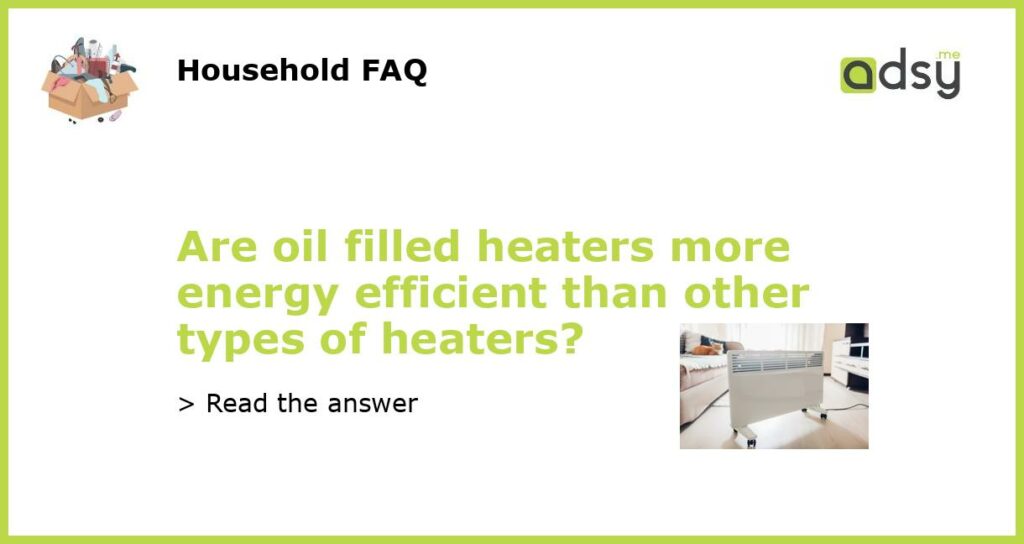Oil Filled Heaters vs Other Types of Heaters: Which is More Energy Efficient?
When it comes to choosing a heater for your home or office, energy efficiency is an important factor to consider. Not only can energy efficient heaters save you money on your energy bills, but they also have a reduced impact on the environment. One type of heater that is often praised for its energy efficiency is the oil-filled heater. In this article, we will explore whether oil-filled heaters are truly more energy efficient than other types of heaters.
Understanding Oil-Filled Heaters
Oil-filled heaters are a type of radiant heater that use electricity to heat oil contained in a reservoir. The oil then heats up the metal fins of the heater, which radiates heat into the surrounding space. This method allows for the slow release of heat, providing a consistent and long-lasting warmth. Unlike other types of heaters, oil-filled heaters do not rely on fans or blowers to distribute heat, making them quieter to operate.
Comparing Energy Efficiency
When comparing energy efficiency, it is important to consider the heating technology and the amount of energy required to generate heat. While oil-filled heaters are often marketed as highly efficient, the truth is that the energy efficiency of any heater depends on various factors, including insulation, room size, and temperature settings.
Oil-filled heaters have the advantage of retaining heat even after the unit has been turned off. This means that they can continue to radiate heat and warm up a room for a longer period of time compared to other types of heaters. However, they also take longer to heat up initially since the oil needs time to warm up.
Other types of heaters, such as ceramic heaters and infrared heaters, can heat up a room more quickly than oil-filled heaters. However, they may not retain heat as effectively once turned off. This can result in the room cooling down more quickly, requiring the heater to be turned on again more frequently.
It is also worth noting that oil-filled heaters are generally designed to heat smaller spaces, such as individual rooms. They may not be as effective for larger areas or open floor plans, where the heat can dissipate more easily.
Factors Affecting Energy Efficiency
While oil-filled heaters can be energy efficient in certain situations, there are several factors that can impact their overall efficiency.
Insulation: The insulation of the room plays a significant role in the energy efficiency of any type of heater. Well-insulated rooms retain heat better, allowing the heater to work more efficiently.
Temperature Settings: The temperature at which a heater is set can also affect its efficiency. Lowering the temperature by just a few degrees can result in significant energy savings.
Usage Patterns: How often and for how long the heater is used can impact its energy efficiency. If the heater is constantly running or used for extended periods of time, it may not be as efficient as if it is used intermittently or for shorter durations.
Thermostat Controls: Some oil-filled heaters come with built-in thermostat controls, allowing users to set the desired temperature. This can help prevent energy waste by ensuring the heater only operates when necessary.
While oil-filled heaters are often touted as energy efficient, the truth is that their efficiency depends on various factors. Factors such as insulation, room size, temperature settings, and usage patterns all play a role in determining the overall efficiency of a heater. Oil-filled heaters have the advantage of retaining heat after being turned off, but they may take longer to heat up initially compared to other types of heaters. Ultimately, it is important to consider your specific heating needs and the unique characteristics of your space when determining which type of heater is the most energy efficient choice for you.






